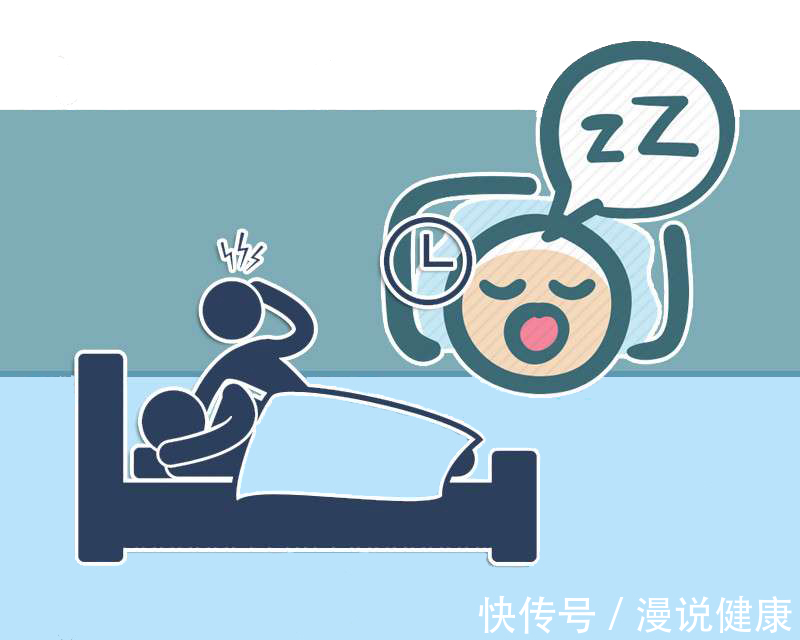A long time ago, there was a man who snored a lot.
Later….he became single.
Many people always think that snoring in sleep means a good night’s sleep, but in fact snoring is never a good thing, it will not only disturb others, especially those who sleep in the same bed, but may also increase Risk of cardiovascular and cerebrovascular disease.

What causes snoring?
First, narrowing of the airway
A disease in an organ in the mouth can lead to narrowing of the airway in the oral area. When breathing, the airflow speed up in this section, and the fast airflow impacts the organ to vibrate, and snoring sounds.
Oral organ lesions that may cause snoring include: Uvula hypertrophy or ptosis, tonsil hyperplasia, adenoid hyperplasia, mandibular deformity or retraction, tongue hypertrophy, soft palate depression< /strong> etc. Among them, uvula lesions are the most common.
The uvula is the muscle that extends downward from the soft palate in the oral cavity. It is located at the base of the tongue, like an extended peninsula. When the opening is opened, it can be clearly seen. The arch of the palate and the base of the tongue together form the throat.

The Yellow Emperor’s Classic of Internal Medicine says: “The sound of the uvula is the key to the sound of words”< /strong>, that the uvula is the vocal organ of language.
However, modern medicine has finally discovered that the vocal cords are the vocal cords, not the uvula, and the uvula of healthy people will not produce sound.
In patients with hypertrophy or prolapse of the uvula, the uvula is in a relaxed state during sleep, the muscle tension is weakened, and the impact of the airflow through breathing will vibrate to form a snoring sound.
That is to say, after uvula lesions, snoring usually occurs during sleep, and when not falling asleep, the muscle tension is strong, and snoring will not occur.
In addition, excessive fat deposits in the neck of obese people can also lead to narrowing of the airway.
Incorrect sleeping position may also cause stenosis of the airway. For example, when sleeping on the back, the base of the tongue will naturally fall back, occupying part of the trachea, and the airway will be narrowed.

Second, nasal lesions
cold Nasal congestion, breathing airflow can not be smooth in the nasal cavity, can only breathe through the mouth, the airflow will vibrate the soft palate above the mouth, resulting in snoring.
In addition to colds, there are many other causes of nasal congestion, such as nasal polyps, turbinate hypertrophy, nasopharyngeal lymphadenopathy, deviated nasal septum, and nasal mucosal congestion.
Some people would pinch the nose of the snorer when they hear the snoring sound, hoping to stop snoring.
In fact, this method is ineffective. After pinching the nose, the airflow in the nasal cavity is completely blocked, and the air volume of the breath is all in and out of the mouth, which will aggravate the snoring.

Third, breathing is suppressed
Some people experience snoring after drinking alcohol or taking sleeping pills, because alcohol or sleeping pills can suppress breathing. Airway inflammation or edema can also inhibit breathing, leading to snoring.
In people who already suffer from snoring, factors such as drinking, sleeping pills, inflammation, edema can make snoring worse. These factors are all “external factors” to the snoring person, and after eliminating these factors, the snoring will decrease or disappear.
Snoring is hereditary, and some familial snoring is caused by genetic factors and is a congenital disease.
The so-called congenital snoring is actually nothing more than a congenital developmental abnormality, such as congenital deviated nasal septum, congenital airway stenosis, congenital uvula hypertrophy or prolapse, etc.

Severe snoring, possibly suggestive of obstructive sleep apnea syndrome strong>
For a long time, the medical community has not paid too much attention to the phenomenon of snoring, and believes that snoring is just to disturb others to sleep and rest.
Until the 1970s, sleep-disordered breathing was gradually paid attention to by the medical community, and snoring was the most common symptom. The mouth, nose, throat and other parts enter the trachea. If there is any obstruction in the middle of the process, it will be prone to sound.
However, most people will have corresponding soft tissue relaxation and collapse during sleep, resulting in obstruction of airflow and snoring.
Therefore, not everyone who snores has sleep-disordered breathing. Generally, mild snoring does not pose a big threat, but strong and irregular snoring requires attention!
